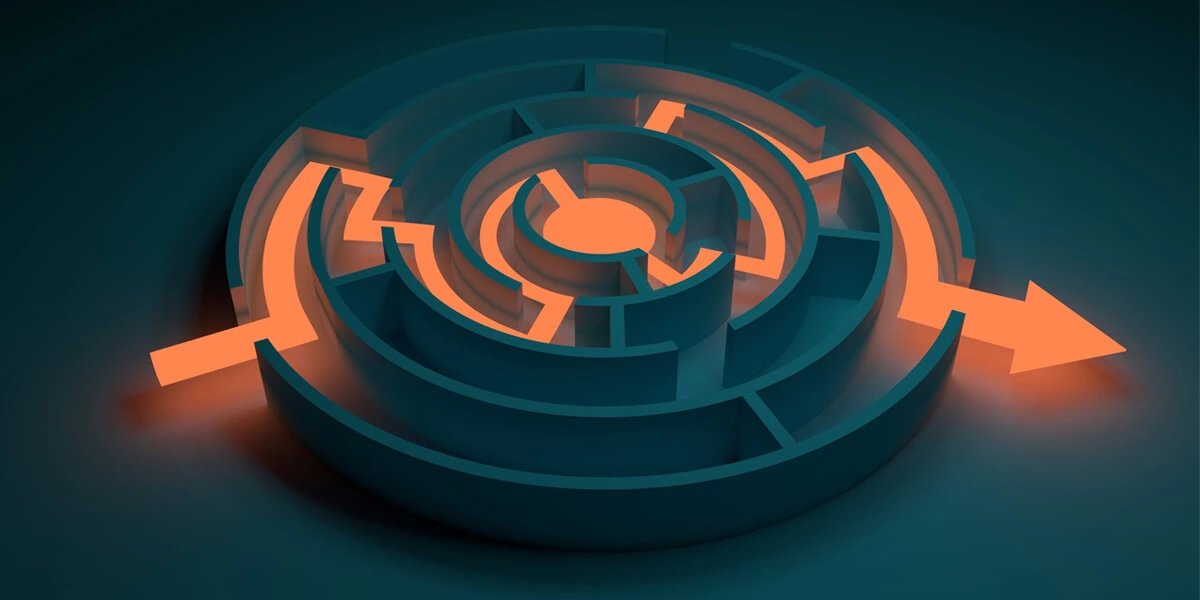Healthcare innovations fuelled by COVID-19

Healthcare is experiencing transformative effects of the coronavirus like no other industry. In the absence of a vaccine and with cases multiplying every day, there’s an overwhelming burden on medical institutions to offer their best services while ensuring safety for healthcare workers. The health emergency has created supply chain problems, further testing the limits of healthcare service providers. Healthcare innovation is critical to finding better solutions in the time of the coronavirus.
Medtech solutions, particularly in telehealth, have been instrumental in supporting patient triage and early investigation and detection of the disease. Regulations, too, are quickly changing to minimize barriers to speedy and contactless health services. As the healthcare industry braces itself for one of the biggest challenges it has faced in modern times, here’s how innovations in the medical sphere are helping reduce the impact of the pandemic.
Contactless screening
Fever is a symptom in 83-99% of COVID-19 patients. A few medical device firms have introduced contactless screening devices to enable automatic detection of health symptoms. Through a combination of thermal sensors and AI-based voice or face recognition technologies, these devices help detect infected individuals without putting staff at risk.
Etihad Airways is testing contactless screening technologies developed by Elenium Automation at its hub airport in Abu Dhabi. Similarly, RUSH, a medical university center, is using contactless screening technology developed by care.ai to monitor people entering its campus.
Predictmix Inc, a Canadian healthcare services firm, has developed an AI-based mass screening technology that leverages face and voice recognition capabilities to detect infectious diseases.
DERMALOG, the supplier of the biometric border control system, has developed a special fever camera, which is integrated into Thailand’s airports. It is designed to capture not only fingerprints and faces, but also measures the body temperature of travelers who pass through the related counters.
Contact tracing apps
High-tech methods of contact tracing, which involves tracking peoples’ location via phone networks, are gaining ground in countries like Australia, South Korea, Israel, the US, and the UK. These apps use Bluetooth or GPS technologies to monitor the movements of infected persons and who they have come in contact with. As many contact tracing apps currently store this data on centralized servers, there has been significant criticism over their use of personal data.
Apple and Google have teamed up to develop a fully-decentralized solution that helps authorities trace contacts without compromising on privacy. The app is expected to be launched on May 1, 2020.
Rapid testing systems
As severe medical supply shortages affect hospitals’ ability to test patients, there is a pressing need for systems that are easier to procure and deliver results quickly. A slew of MedTech firms, including behemoths like Abbott and Bosch as well as local healthcare providers across the globe have stepped up to develop portable rapid test devices. They take anywhere between 10 minutes to a couple of hours to generate test results.
Blockchain-based COVID-19 “immunity passports”
Given that the COVID-19 may exist with humans for an extended period, passes called “immunity passports” that allow immune persons to be exempted from restrictions on their activity can help reopen the society. Immunity passports could be specifically useful for healthcare workers because of the level of staff the sector needs.
Covid Credentials Initiative, a collaboration among over 60 tech blockchain companies, is working on a self-sovereign identity (SSI) system to do so. The decentralized identity solution will help ensure that data remains secure and private.
Healthcare robots
Robots are helping minimize the spread of COVID-19 by taking on tasks that potentially lead to virus exposure. This includes disinfecting public places and hospitals, treating infected patients, and transporting items within hospitals.
CRISPR-based molecular diagnostics
A new testing platform, called CARMEN, developed by the Broad Institute of MIT and Harvard, allows doctors to test for multiple diseases simultaneously. The platform includes the CRISPR protein Cas13, which finds the specific viral genetic sequence being targeted — like the novel coronavirus — to produce a signal. It can allow doctors to test a single sample for different pathogens, greatly benefiting diagnostic efforts.
3D-printed full-face masks
While there’s limited evidence of the benefits of face-masks in combating the spread of the coronavirus, they are used extensively by healthcare workers. The Dubai Health Authority (DHA) announced that it is 3D printing full-face masks to protect healthcare professionals and frontliners against the pandemic.
AI-based epidemic spread predictions
AI-based models are helping authorities around the world monitor and predict the spread of the coronavirus. Based on data about confirmed cases, deaths and local testing statistics, these models can predict how many people will get infected in the future. AI epidemiology company BlueDot has successfully helped the state of California monitor the spread of the coronavirus at the zip code level.
Similarly, researchers from the Singapore University of Technology and Design (SUTD) have predicted the end of the pandemic in December using AI. EHR vendor Epic’s AI-based system is being used by hospitals across the US to predict which Covid-19 patients will become critically ill. It uses data on patients’ vital signs, lab results, and nursing assessments to predict a patient’s deterioration risk.
Personal protective booths (PPB)
Performing enough tests is an essential step to control the spread of the coronavirus. South Korean healthcare professionals are using personal professionals booths for safer testing on a wide scale. The advantage of PPBs is that healthcare providers do not require any personal protective equipment (PPE) as they stand inside the booth and take samples from patients. A similar testing booth was recently installed at Newton-Wellesley Hospital in Massachusetts.
Digital health solutions / Telehealth
A variety of digital health apps are allowing clinicians to connect with and treat patients remotely. Real-time communication with health experts via audio-video channels, including video and phone calls, even text messaging, can help providers overcome clinician shortages, reduce traffic in hospitals, and attend to patients in remote areas.
While telehealth has been used for decades, the COVID-19 pandemic has prompted wider acceptance among healthcare practitioners. Authorities have begun relaxing rules to increase telehealth access and ease licensing for medical professionals. These changes are likely to stay even after the pandemic, giving a greater push to telehealth firms.
As technology firms join forces with healthcare providers, it is helping expand current solutions and enabling new capabilities that will address challenges beyond those posed by the pandemic. Increase collaboration between IT vendors and medical practitioners will be key to solving the right problems and meet the requirements of the healthcare industry.
Read more: The impact of COVID-19 on the life sciences industry
Netscribes provides comprehensive market and innovation insights to enable both healthcare providers and tech firms to better respond to consumer needs and create successful products. Speak to us to know more.






